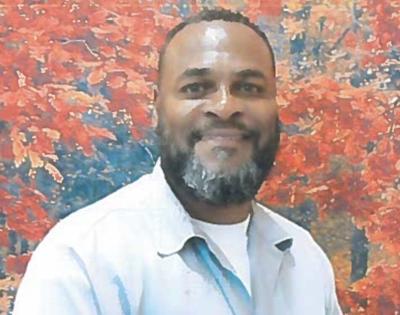Terrell Robinson wanted to be a boxer.
In 1985, he won a Golden Gloves tournament for beginners. Two years later, his life took a turn for the worst. He was 17, living near Union Boulevard and Natural Bridge Road in north 51║┌┴Ž, when he got busted for robbing a coin-operated laundry while with some other teens.
A police officer, Jeffry Kowalski, happened upon the teensŌĆÖ car. They ran, he chased. Somebody fired a gun toward Kowalski and hit him. The officer fired back and hit Robinson.
By early 1988, Robinson was being sentenced to 50 years in state prison on felony robbery and armed criminal action charges. It was a harsh sentence for a 17-year-old, but he, or his buddy, shot a cop.┬Ā
Kowalski retired after serving 20 years in the police department. He died of cancer in 2008. A year later, the Board of Police Commissioners declared his death was in the line of duty, connecting his cancer to the original shooting.
People are also reading…
Robinson served about 20 years of his sentence. He was paroled and came back to 51║┌┴Ž. He attended classes at Vatterott College. He worked with young boxers. He met with his parole officer. He sometimes self-medicated with alcohol and marijuana to deal with his lifetime of trauma. Those were potential parole violations, and he admitted them to his parole officer. He planned to seek treatment for substance abuse. He was arrested a couple of times, but never charged with any new crimes.
Then, in November 2009, his parole was revoked. HeŌĆÖs been back in prison for 12 years.
To this day, he doesnŌĆÖt know why. His freedom was snatched from him without due process. That is one of many confounding details outlined in filed Tuesday in St. Francois County Circuit Court by his attorneys, Shubra Ohri and Amy Breihan, of the MacArthur Justice Center, a nonprofit law firm that has been battling the state of Missouri over its unconstitutional probation and parole practices for several years.
Robinson is a textbook case, Breihan says, of the failures in the parole system already found unconstitutional by a federal judge in a separate case. For years, the system has been re-imprisoning parolees on alleged technical violations without proper notice, without giving them access to counsel, and without proper consideration of alternatives to incarceration.
The result is that more than half of the detainees in MissouriŌĆÖs prisons are there on probation or parole violations, a percentage topped by just one state in the country.
ŌĆ£If, indeed, Mr. RobinsonŌĆÖs parole was revoked based on alleged violation of the pre-arrest ŌĆśspecial conditionsŌĆÖ and ŌĆśdrugsŌĆÖ parole violations, it would have been a text book example where alternatives to incarceration would have been more appropriate,ŌĆØ Ohri and Breihan wrote in their petition seeking RobinsonŌĆÖs freedom. ŌĆ£The Missouri Supreme Court held that violation of probation conditions does not automatically result in imprisonment without reflection on alternatives.ŌĆØ
Two years ago, Robinson married his longtime sweetheart, Lawanda. They have a child and two grandchildren together. She visits him twice a week in Bonne Terre, where he is incarcerated.
ŌĆ£They never told him why he was revoked,ŌĆØ she says. ŌĆ£He doesnŌĆÖt even know. He never went to court.ŌĆØ
To this day, even RobinsonŌĆÖs attorneys say the record isnŌĆÖt clear why heŌĆÖs been locked up for 12 years after he got paroled the first time.
ŌĆ£He never saw written notification of what his parole had been revoked for. He was never apprised of his rights. He was never told about his right to an attorney,ŌĆØ Ohri says. ŌĆ£ItŌĆÖs still unclear to us as attorneys what his parole was revoked for. We just have no idea. We have no way of knowing.ŌĆØ
More than a year ago, U.S. District Judge Stephen R. Bough ordered the state to reform its parole practices to include the due process elements required by the constitution, but the ruling has been delayed because Missouri Attorney General Eric Schmitt has appealed it, despite an admission from the state that the previous parole process was horribly flawed.
ŌĆ£The Court finds troubling the pressure placed on parolees to waive preliminary and revocation hearings, sometimes based on false and misleading information,ŌĆØ Bough wrote in his still-not enforced ruling. ŌĆ£The issue is exacerbated by evidence that some parolees waive their right to hearings before receiving their violation reports and without an adequate explanation of their rights in the process.ŌĆØ
So Robinson, and others like him, people who have served their time, and then are locked up again for either technical or unexplained reasons, sit behind bars, awaiting action.
ŌĆ£He was my first love,ŌĆØ says his wife, who hopes the petition is successful. ŌĆ£I need my husband home with me.ŌĆØ
Editor's note: This column has been updated to correct the spelling of Jeffry Kowalski's name and to add that Kowalski's death in 2008 was ruled to have been in the line of duty.┬Ā
















